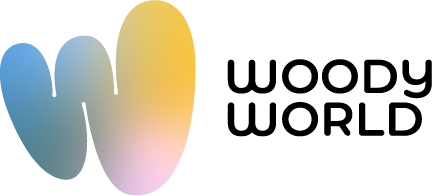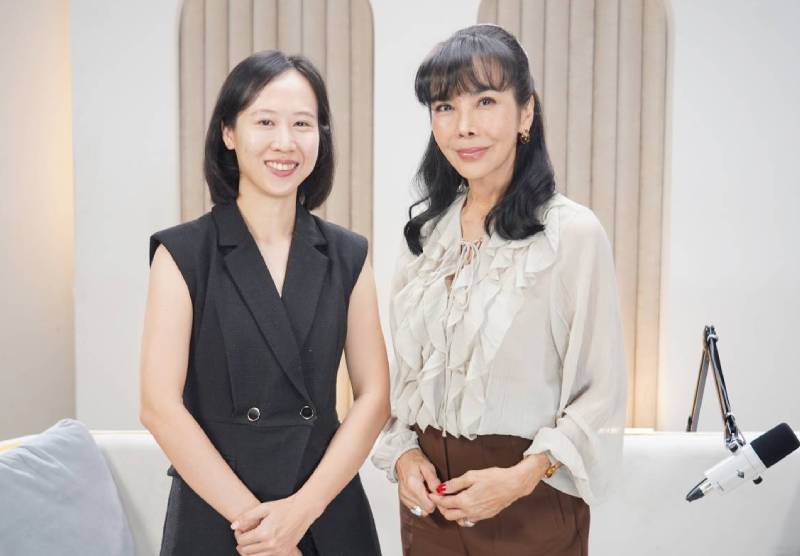Fall asleep easily, fall asleep quickly, just use your fingertips! This week’s Tuck Talk program takes you to explore the world of Chinese medicine. Just look at the face, look at the tongue, feel the pulse, and you can tell all your illnesses. Do you want to reduce stress and fall asleep easily, just use your fingertips? Come understand the power within the body and how to take care of your health using Chinese medicine that has been passed down for thousands of years with “Dr. Kan Nattakan,” a Chinese doctor who specializes in balancing the body and mind.
What are the differences in treatment principles between traditional Chinese medicine and modern medicine?
Dr. Kan: Traditional Chinese medicine practitioners have traditionally viewed patients holistically. They don’t consider the illnesses that modern medicine provides. Instead, we examine the patient from the ground up, examining their facial expressions, their pulse, their tongue, and their holistic approach. Sometimes, a patient may be diagnosed with liver stagnation, when in fact, they may have kidney disease. For example, when it comes to Chinese medicine terminology, once we understand it, we understand that it’s not entirely the same as modern medicine. When we examine and treat, we use Chinese medicine for analysis and prescribe medications, and we don’t rely entirely on modern medicine.
Different treatment behaviors?
Dr. Kan: It’s completely different. For example, if we’re a modern doctor, let’s say we have a stomachache, we’ll just do a biopsy. Is it the stomach or something else? But with a Chinese medicine doctor, we’ll have to examine everything. If the stomachache is severe, we’ll look at what we ate and ask about a general medical history. But sometimes, the patient’s diet isn’t at all causing the problem. They’re eating normally, just like every other time. But if we go deeper, the patient might be staying up late, having trouble sleeping, or experiencing stress. They’ll see that the blocked liver qi is directly affecting the spleen and stomach qi, which sometimes causes acid reflux. Many people might take antacids, but it doesn’t go away because sometimes the problem isn’t caused by the digestive tract itself.
But in Chinese medicine, we look at the liver’s energy, which helps the spleen and stomach circulate. When the liver’s energy becomes blocked, the spleen and stomach become blocked as well. Therefore, many people experience stomach pain when stressed, and stress flares up. This is because we treat the liver’s energy. When we treat these specific areas, many patients feel more relaxed. In traditional Chinese medicine, we look at what’s called “ping yin” and “ping ji,” which are the disease mechanisms and causes of disease. We don’t look at the problem with this organ. Before the problem occurred, the patient may have had problems with other systems that were already affecting them. Then, if the patient is diagnosed with this disease, we look at the cause and the disease mechanism. Then we treat this mechanism. When the disease mechanism disappears, the patient doesn’t have the disease, so the patient improves.
Chinese medicine emphasizes the importance of qi energy. It must be balanced and free from obstruction. What is qi energy?
Dr. Kan: It’s like when we breathe, the lungs control the breath and regulate the flow of Qi. So when we’re in pain, no matter what kind of physical injury we’re having, or if we’re in pain from exercising, and we’re not aware of it in time and become anxious about the pain, it can only get worse. For example, we hear that injured patients can’t withstand the effects of their wounds because they went into shock. If we can manage our Qi well, that is, control our breathing, the heart won’t jump, so they won’t go into shock easily. We can control the pain, just like the monks said, “We’ll see the pain.” This is the view from traditional Chinese medicine. If we’re aware of our breath and breathe well, we’ll be able to endure the pain without suffering. And that pain won’t take our life.
The Dharma principle is to breathe in and out, and to focus on the breath there, is that good?
Dr. Kan: Very good, because when the pain comes back, we can breathe and endure it. Exercise, breathing meditation, or even sleep. During times when we breathe more evenly, we’ll exercise, breathe more deeply, meditate, and sleep more soundly. Now, if someone doesn’t exercise, meditate, and sleep deprived, you can observe their breathing. They might not be aware of whether they’re breathing or not. They might stop breathing or have shortness of breath. They might not even be aware of the problems with this group of people, such as acid reflux, depression, panic attacks, mood swings, and anxiety, all reflect on their emotions.
If we assume that we do not take good care of our Qi, there is a blockage or poor blood circulation, what effect will it have?
Dr. Kan: The immediate effect is the qi energy that exists in our blood vessels. The qi that pumps the blood, like a heart, is what pushes the blood. It’s like yin energy. Qi is like yang energy. Yang energy is the driving force. Yin is like a still fluid. Therefore, our blood contains both yin and yang, constantly circulating and fluid flowing. Now, if the qi is stagnant, it’s blocked and doesn’t circulate. The blood will form into a lump. It might not be a physical lump. For example, when we sit for long periods of time, some people will experience neck, shoulder, and back pain because the blood in this area is blocked. Many people get gua sha or cupping. I’ve seen athletes who get cupping and develop a purple tinge. This is because there’s blocked blood in this area, which is why the purple tinge appears. There’s blocked qi before the start, which is why the blood is blocked. For example, exercising too hard or staying still for long periods of time can cause poor blood circulation.
Traditional Chinese medicine has a method called “mae” (heart rate). How can this be used to diagnose disease?
Dr. Kan: Actually, we take our pulse in several places, but the most popular position is the wrist. There are three points we need to observe. This protruding bone is where the middle finger is, and placed next to each other, the first point on the left side is the heart, liver, and kidneys. Observing the pulse is fine. If we want to take it regularly, why is it too slow? Or if it suddenly stops and doesn’t come back, it could be because we don’t have enough strength at that time, or there might be a problem. We take it at three levels.
Is acupressure considered a traditional Chinese medicine treatment? Does it really work?
Dr. Kan: Yes, for example, for people with acid reflux, I like to have them do acupressure. If the patient is at home, I teach this because it’s a form of basic self-care, a form of self-remediation. Now, in treating the disease, acupuncture is used, which goes deeper. Acupressure is a way to provide initial relief, like we might not need to take medication. We just need to get relief first. If it’s okay, we might need to see a doctor for more information.
How do you press it?
Dr. Kan: Place three fingers on your wrist, and place the tips of your fingers between the tendons. Press and knead. If you have a burning sensation in your chest, you can press this point until it eases. Each person’s pain is different.
What are the symptoms of acid reflux?
Dr. Kan: Some people will feel a tightness, a burning sensation in their chest, which is appropriate for this rule. Some people will say that their shoulders hurt, some people have a tight head. It depends on the person.
Where can people who can’t sleep press?
Dr. Kan: The first point that I like to recommend. Actually, for helping you sleep, I recommend having someone else press on it for the best results. You might press it yourself and wake up at the same time. The first point is the Yin Tang point. This point is a point that reduces stress more than the brain that can’t stop thinking. We press and massage until we reach the Shen Ting point, which is between the hairline and the forehead. Shen is the mind. If our mind doesn’t return home, Ting is like a home. Now, if our mind is always wandering, we can press here and massage upwards. Just doing this will make us relax. Another point is the An Men point. This isn’t on the main meridian. It’s a special point, between the lump on the skull here and the lump behind the ear. Massaging it will make us very comfortable. This helps with sleep. It makes us feel calmer. The textbooks say that this point will help you sleep longer and not wake up in the middle of the night. If our mind isn’t ready to receive, it won’t. The heart leads the body, and the mind determines it. Now, if our head and heart are open, treatment will be easier.
Snoring?
Dr. Kan: Snoring is a serious problem. You could call it a candle rub, and press it in behind you, right there on your windpipe. Now, when you press this point, it’s not very dangerous; it stimulates your windpipe and keeps it from getting obstructed. If you want to alleviate your snoring symptoms, start with what you eat. If you don’t eat well, phlegm will build up, which will impede circulation in your windpipe and blood vessels. You can also tap the lung meridian to stimulate it and give it strength. Do this every day to ensure your lungs have sufficient energy. The lungs care for your breathing and windpipe. Certain points are stopping points, not treatment points like taking antihistamines. If you ask if it’s cured, it won’t be cured; it’s just stopping. Therefore, treatment must be continuous and long-term.
Some people like to get foot massages. Is it dangerous if you press the wrong spot?
Dr. Kan: If it’s a normal spot, the arms and legs won’t be damaged.
For those who are interested in using traditional Chinese medicine in health care, what advice do doctors have?
Dr. Kan: If it’s Chinese medicine, taking care of your health normally, whether you’re sick or not, you take care of it the same way. That is, live a natural life. There’s an ancient Chinese text where the emperor talks with the royal physician. The emperor asks how we can live a normal life, live a long life, be it 100 years old. The royal physician tells us to live according to yin and yang, which means living according to natural times: waking up early, eating, resting. Having a good rhythm in life makes our energy last longer. When the sun sets, we go home, following our biological clock.





